
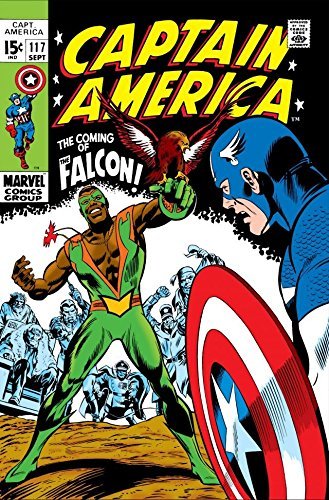
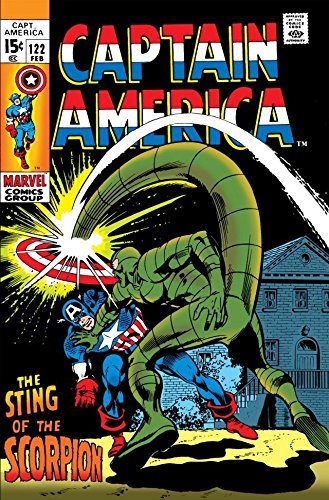
Books in series

Captain America (1968-1996) #109
2014

Captain America (1968-1996) #117
1969

Captain America (1968-1996) #122
2014
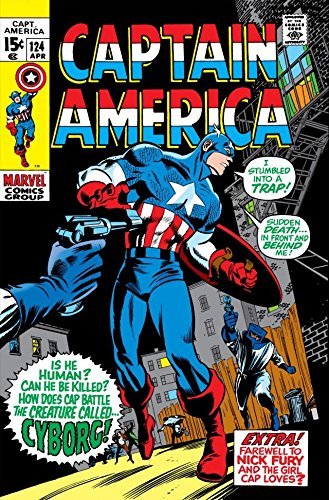
Captain America (1968-1996) #124
2014
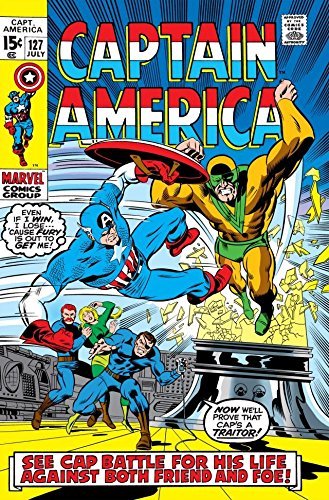
Captain America (1968-1996) #127
1970
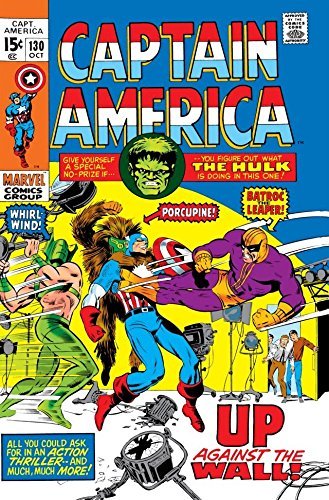
Captain America (1968-1996) #130
2014
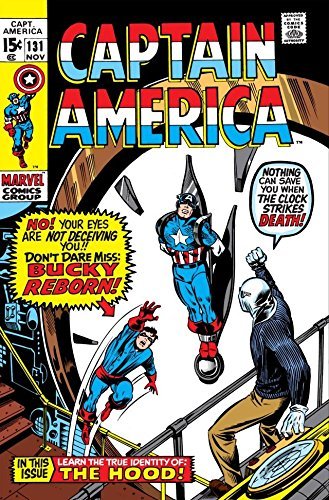
Captain America (1968-1996) #131
2014
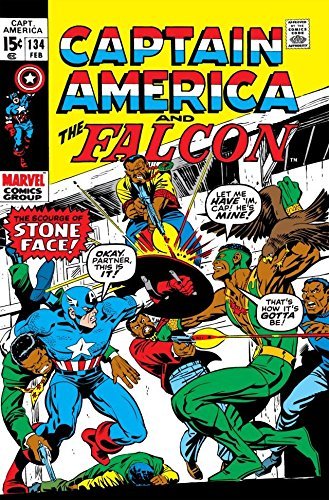
Captain America (1968-1996) #134
1970
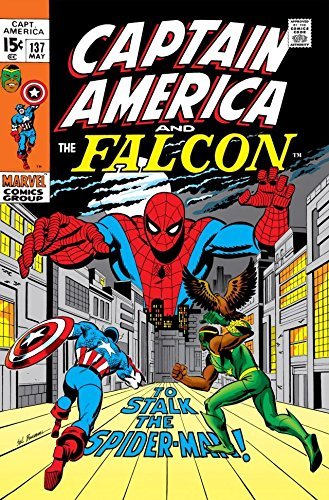
Captain America (1968-1996) #137
2014
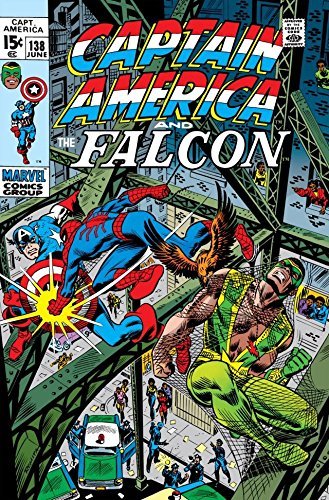
Captain America (1968-1996) #138
2014
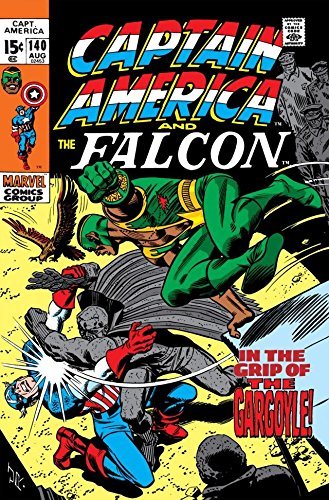
Captain America (1968-1996) #140
2014
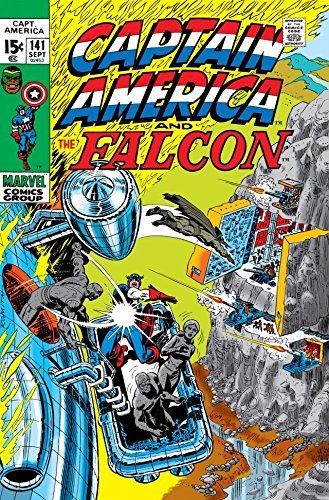
Captain America (1968-1996) #141
2014
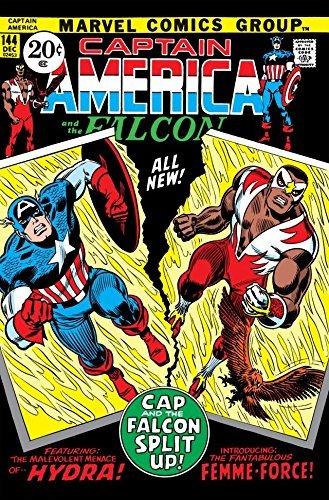
Captain America (1968-1996) #144
2014
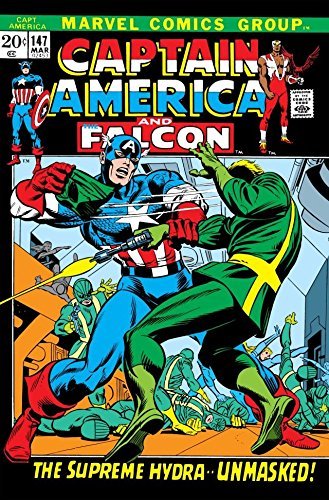
Captain America (1968-1996) #147
2014
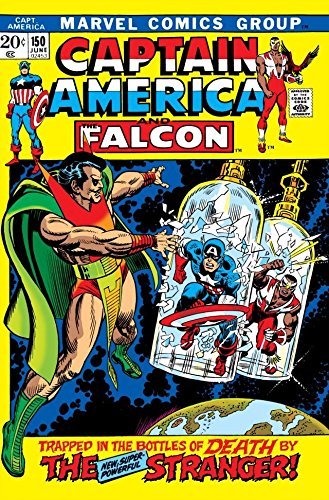
Captain America (1968-1996) #150
2014
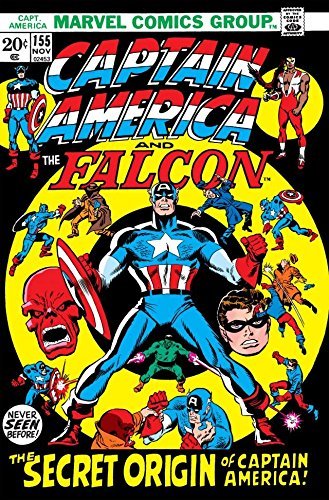
Captain America (1968-1996) #155
1972
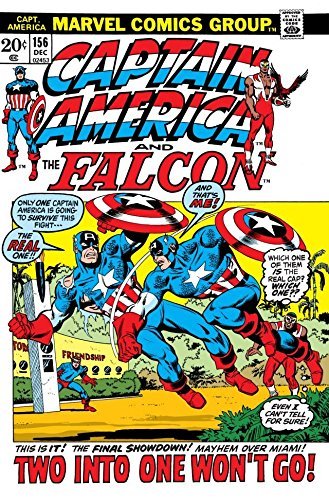
Captain America (1968-1996) #156
2014
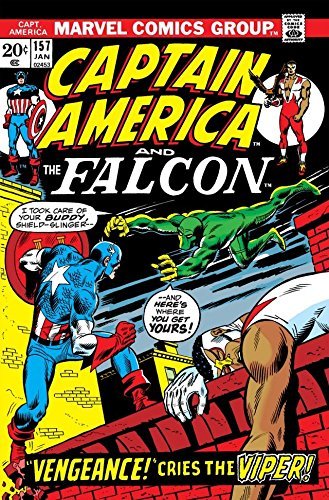
Captain America (1968-1996) #157
2014
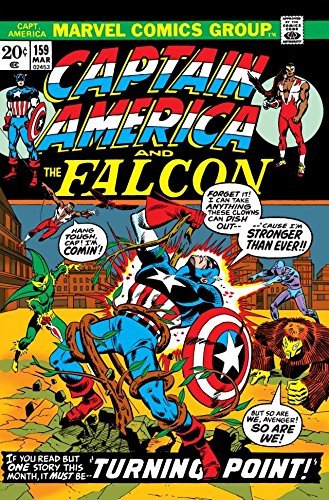
Captain America (1968-1996) #159
1973
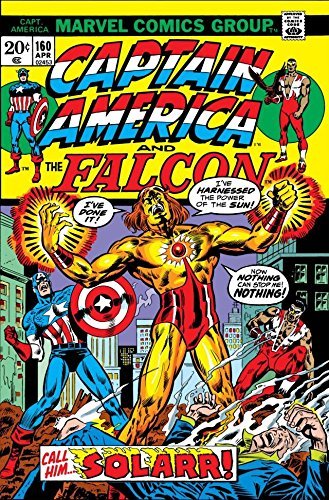
Captain America (1968-1996) #160
1973
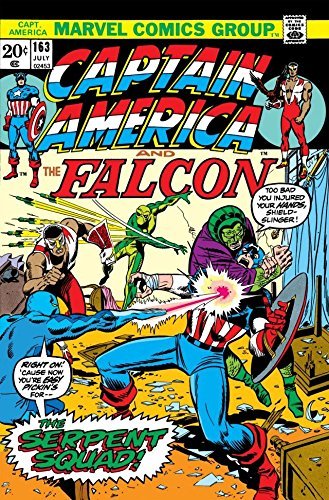
Captain America (1968-1996) #163
1973
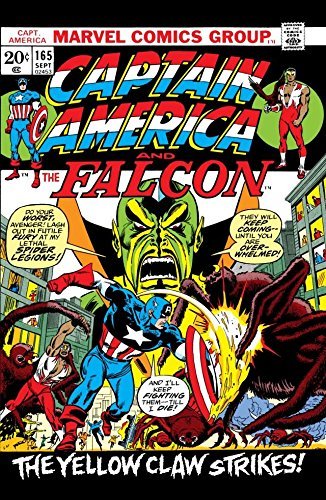
Captain America (1968-1996) #165
2014
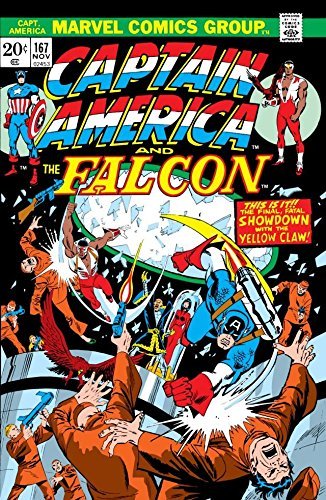
Captain America (1968-1996) #167
2014
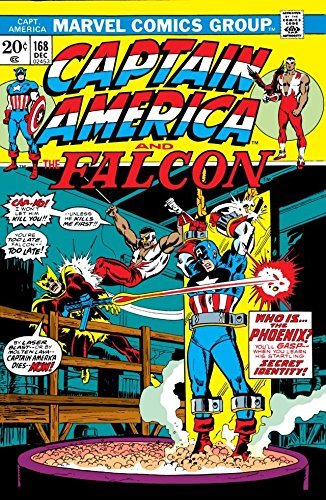
Captain America (1968-1996) #168
2014
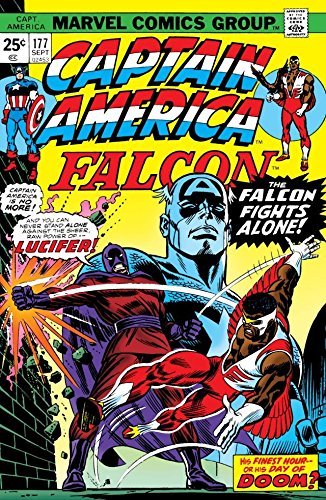
Captain America (1968-1996) #177
2014
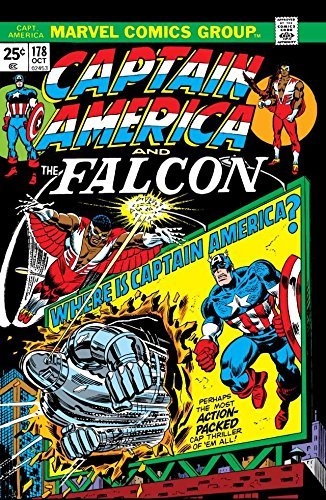
Captain America (1968-1996) #178
2014
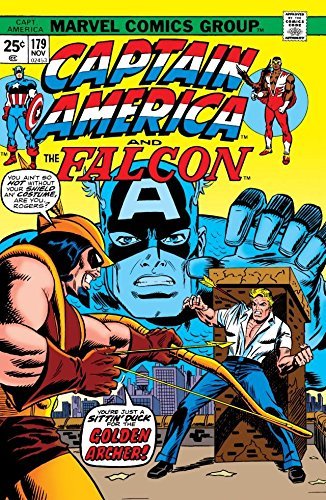
Captain America (1968-1996) #179
2014
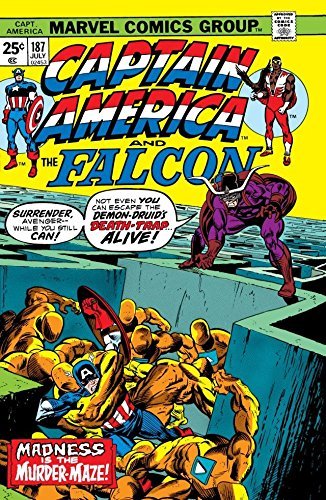
Captain America (1968-1996) #187
2014
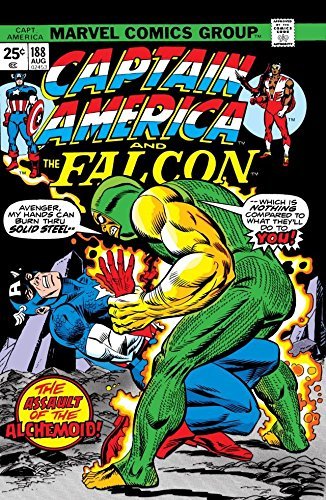
Captain America (1968-1996) #188
1975
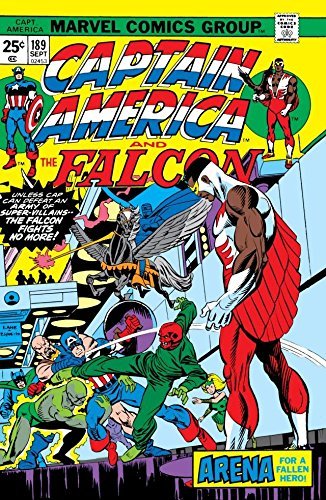
Captain America (1968-1996) #189
2014
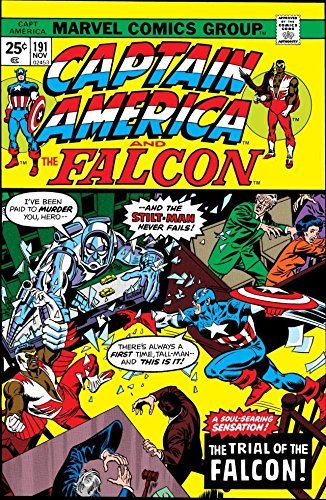
Captain America (1968-1996) #191
1975
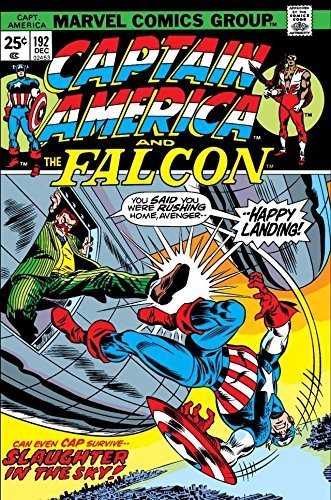
Captain America (1968-1996) #192
1975
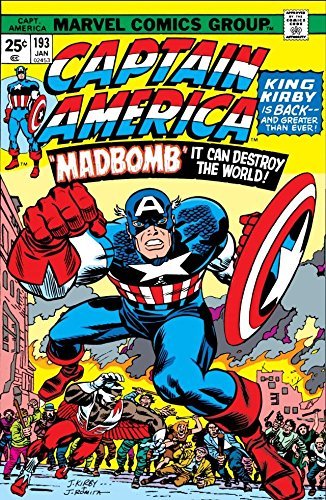
Captain America (1968-1996) #193
1976
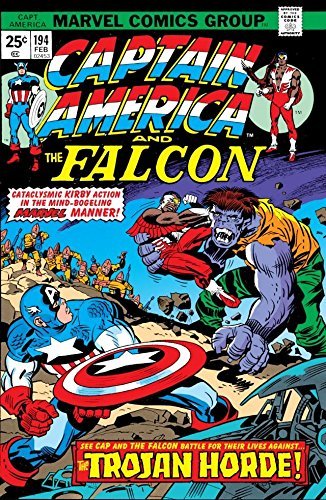
Captain America (1968-1996) #194
1976
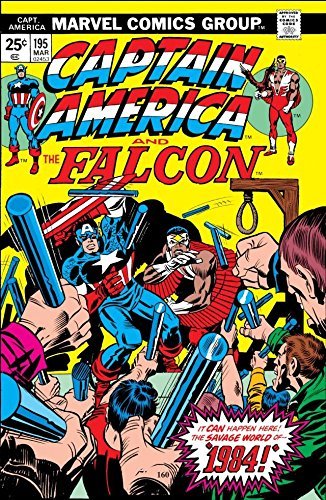
Captain America (1968-1996) #195
1975
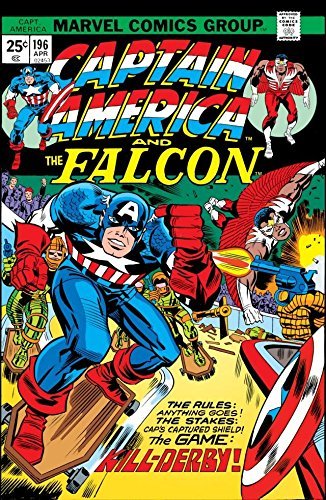
Captain America (1968-1996) #196
1976
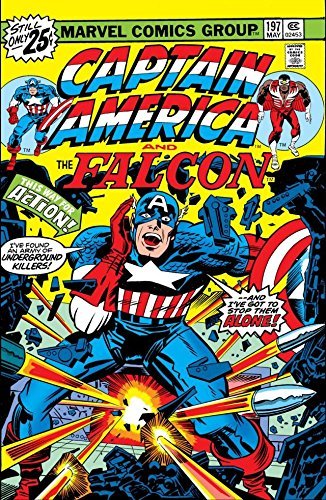
Captain America (1968-1996) #197
1976

Marvel Masterworks
Captain America, Vol. 2
2005

Marvel-Verse
Captain America
2020
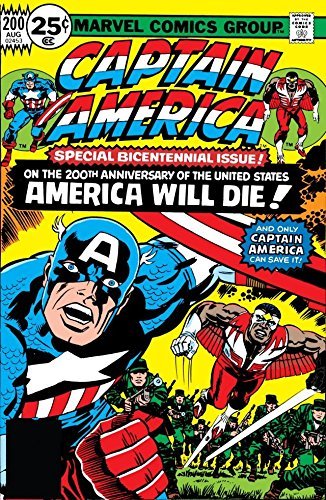
Captain America (1968-1996) #200
1970
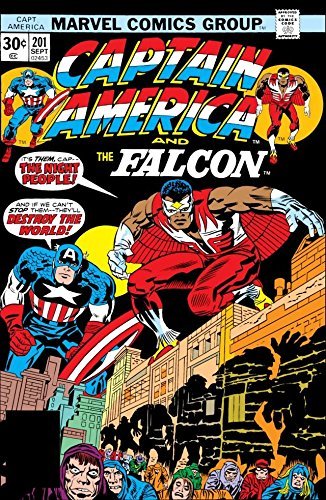
Captain America (1968-1996) #201
1976
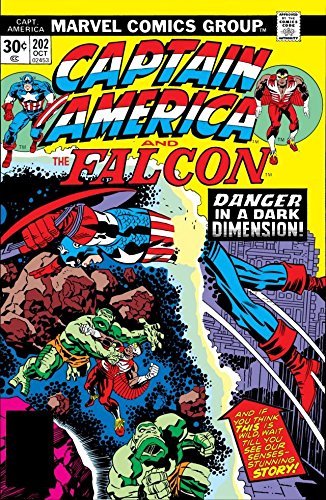
Captain America (1968-1996) #202
1976
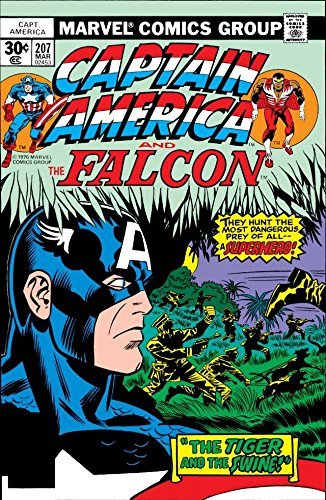
Captain America (1968-1996) #207
1970

Marvel Visionaries
Stan Lee
2005
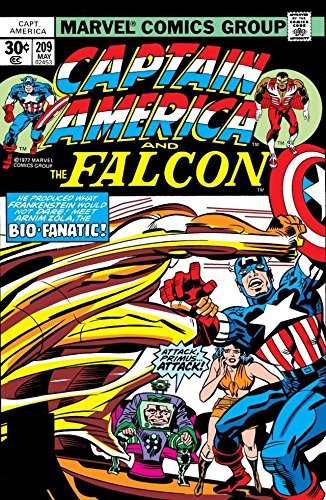
Captain America (1968-1996) #209
1977
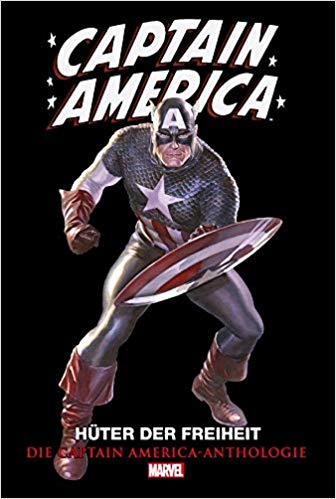
Captain America Anthologie
Hüter der Freiheit
2019
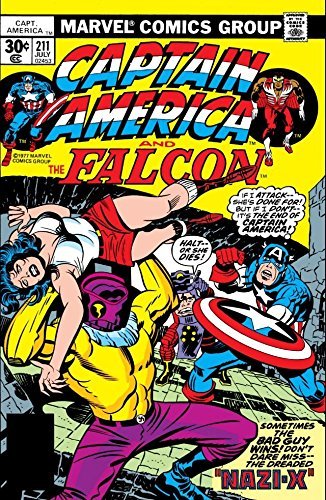
Captain America (1968-1996) #211
1977
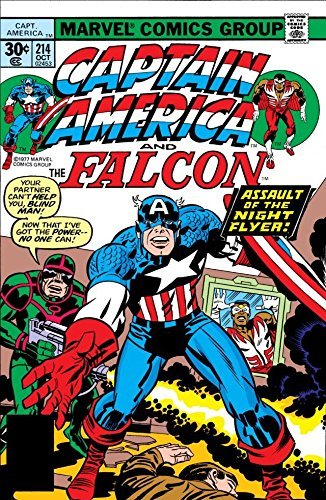
Captain America (1968-1996) #214
1977
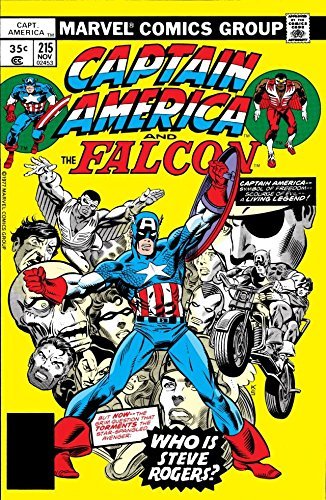
Captain America (1968-1996) #215
1977
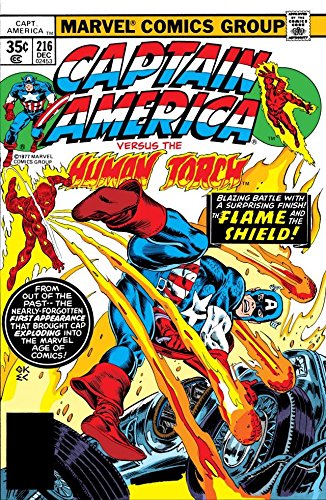
Captain America (1968-1996) #216
1977
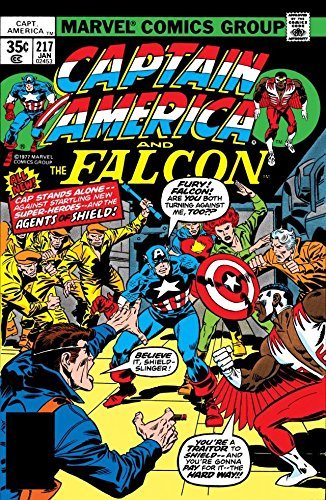
Captain America (1968-1996) #217
1978
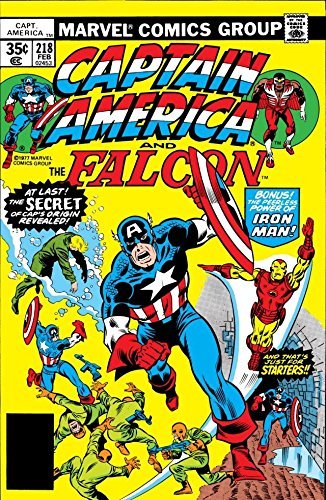
Captain America (1968-1996) #218
1978
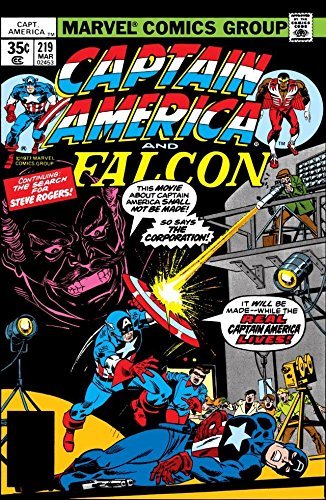
Captain America (1968-1996) #219
1978
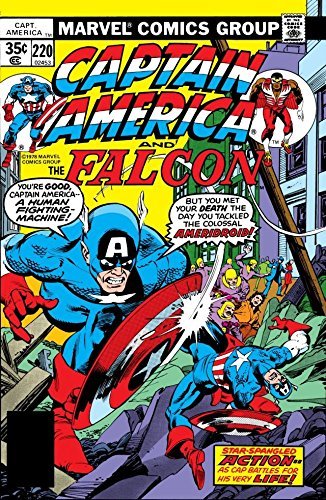
Captain America (1968-1996) #220
1978
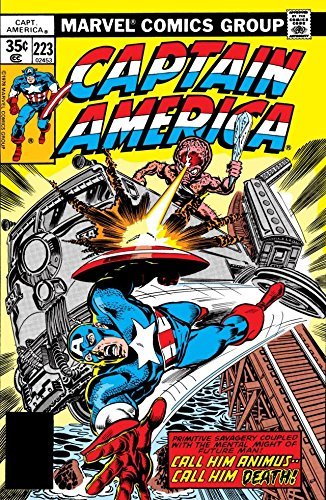
Captain America (1968-1996) #223
1978

Captain America (1968-1996) #224
1978
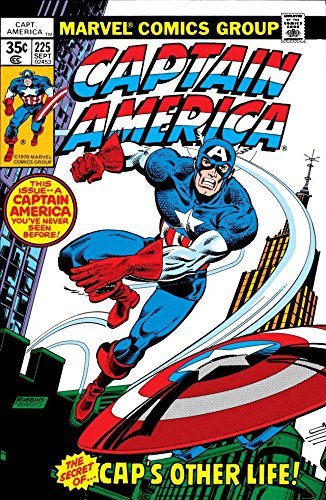
Captain America (1968-1996) #225
1978
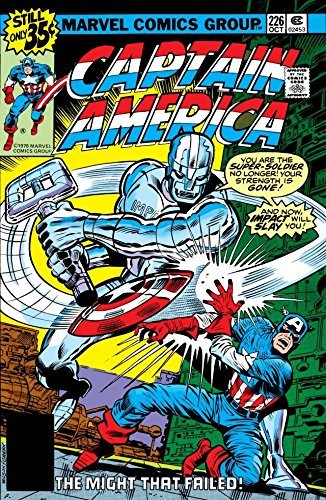
Captain America (1968-1996) #226
1978
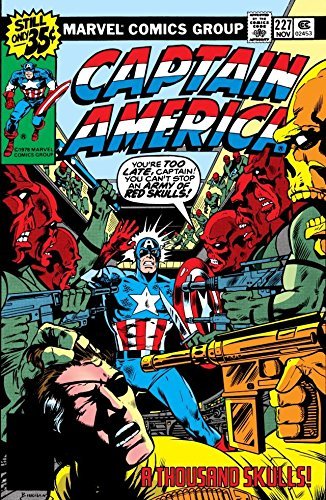
Captain America (1968-1996) #227
1978
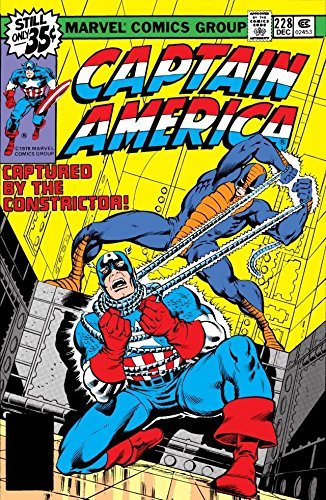
Captain America (1968-1996) #228
1978
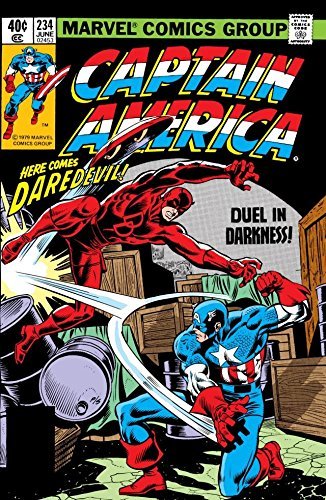
Captain America (1968-1996) #234
1979
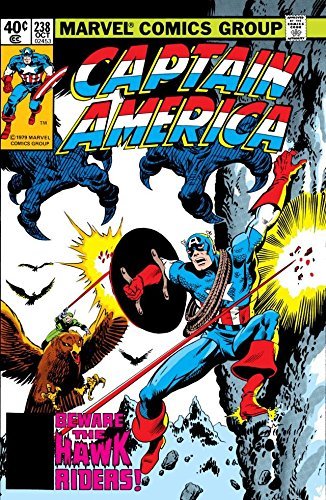
Captain America (1968-1996) #238
1979
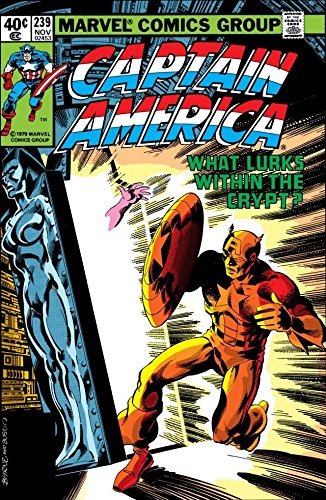
Captain America (1968-1996) #239
1979
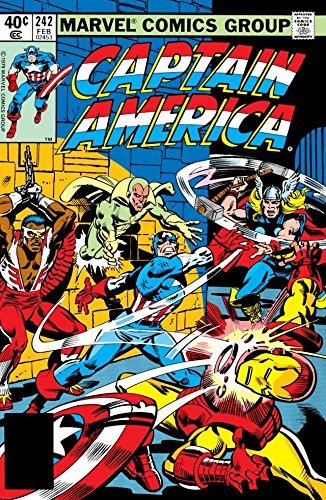
Captain America (1968-1996) #242
2014
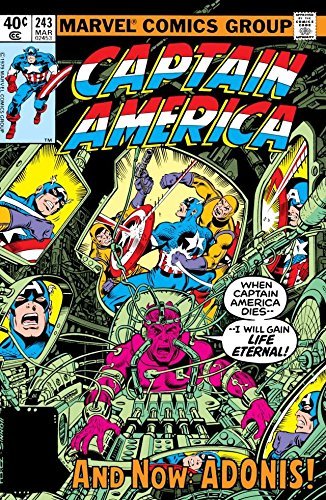
Captain America (1968-1996) #243
1976
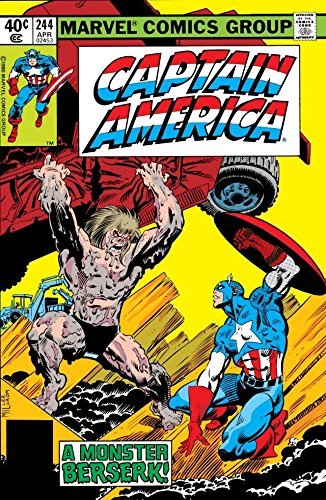
Captain America (1968-1996) #244
1980

The Legacy of Captain America
2011

Captain America (1968-1996) #255
1981
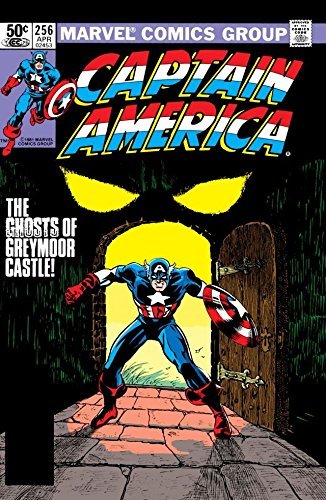
Captain America (1968-1996) #256
1981
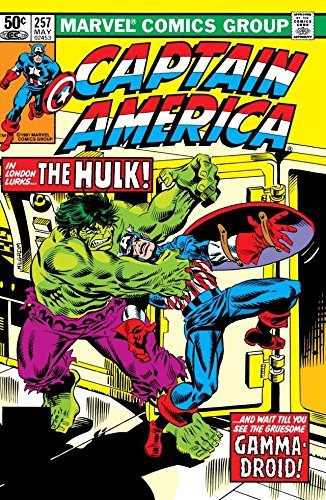
Captain America (1968-1996) #257
1981
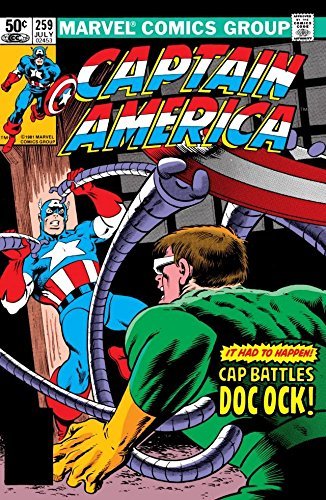
Captain America (1968-1996) #259
2014
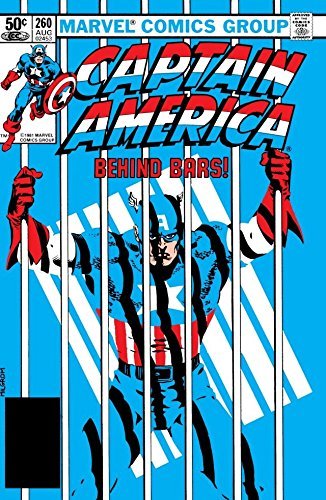
Captain America (1968-1996) #260
1981
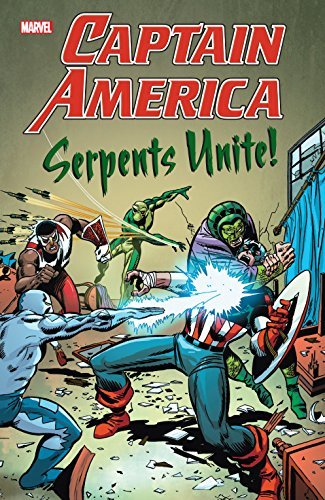
Captain America
Serpents Unite!
2016
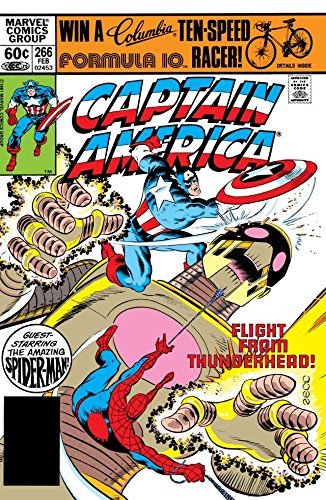
Captain America (1968-1996) #266
1980
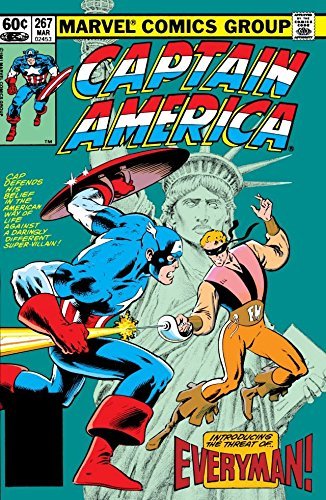
Captain America (1968-1996) #267
1980
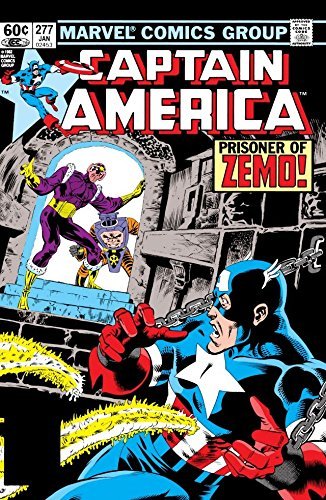
Captain America (1968-1996) #277
1982

Captain America
Evolutions Of A Living Legend
2019
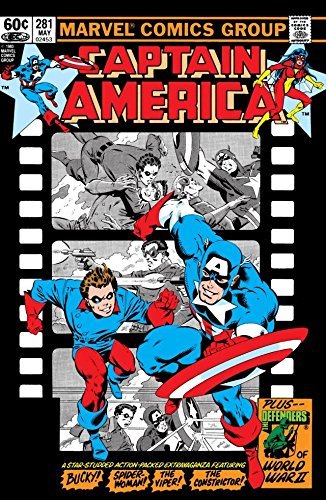
Captain America (1968-1996) #281
2014
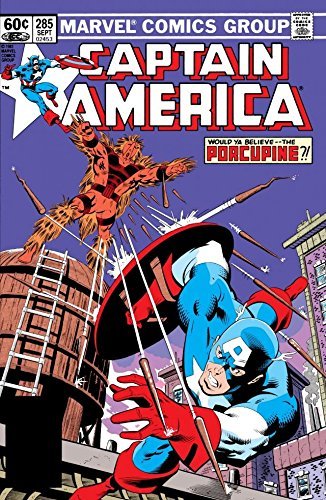
Captain America (1968-1996) #285
1983
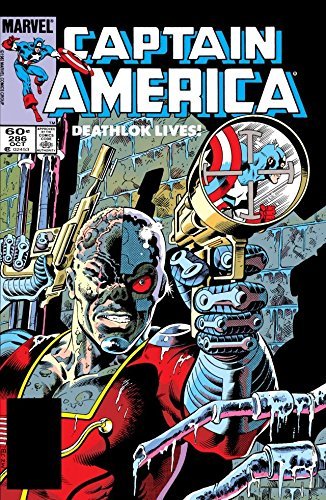
Captain America (1968-1996) #286
1983
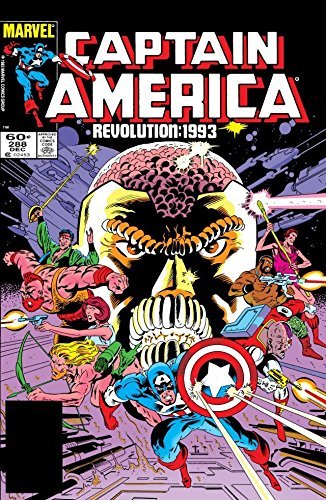
Captain America (1968-1996) #288
1983
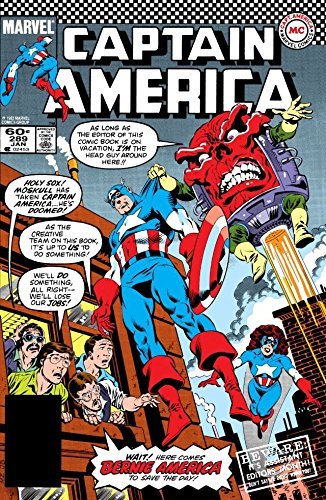
Captain America (1968-1996) #289
1968
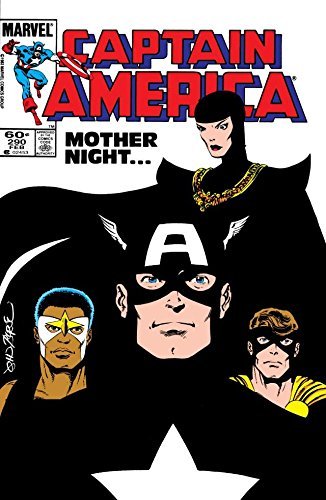
Captain America (1968-1996) #290
1980
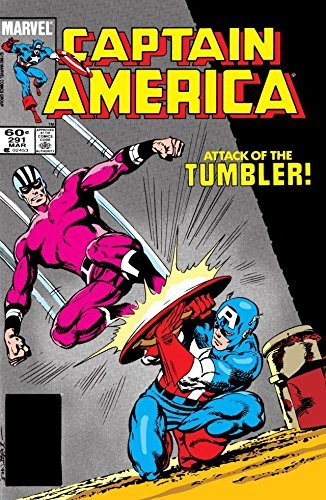
Captain America (1968-1996) #291
1980
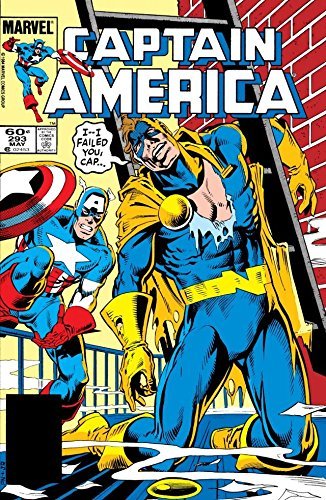
Captain America (1968-1996) #293
1984
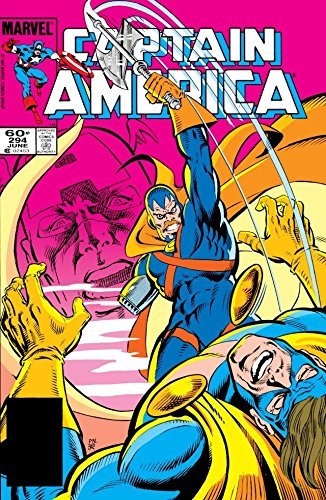
Captain America (1968-1996) #294
1984
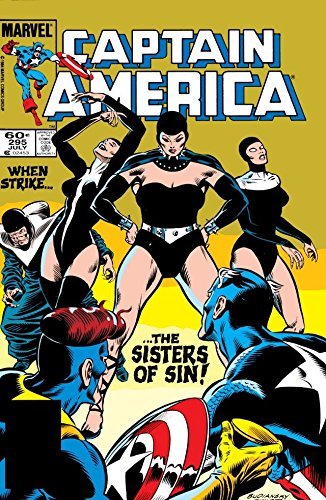
Captain America (1968-1996) #295
2014
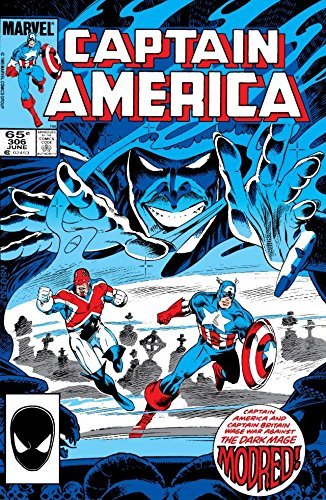
Captain America (1968-1996) #306
1985
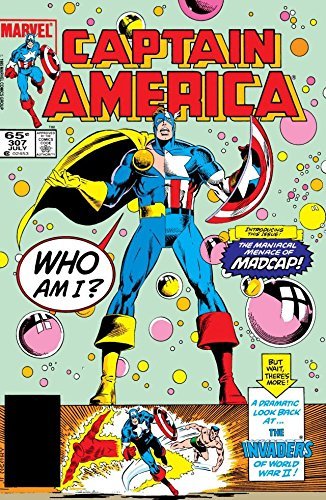
Captain America (1968-1996) #307
1965
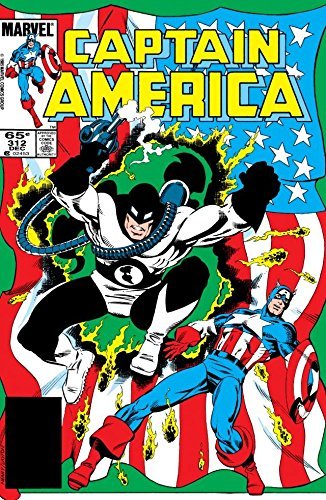
Captain America (1968-1996) #312
1990
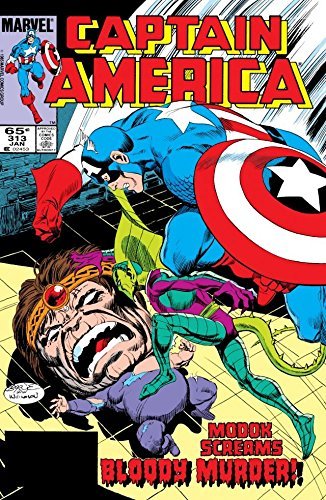
Captain America (1968-1996) #313
1990
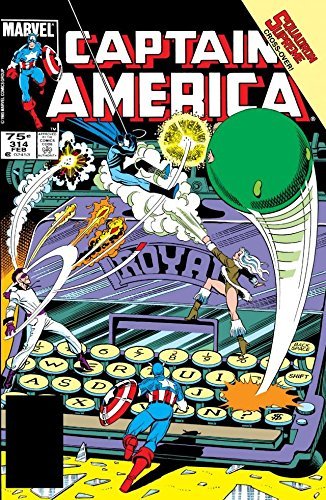
Captain America (1968-1996) #314
1990
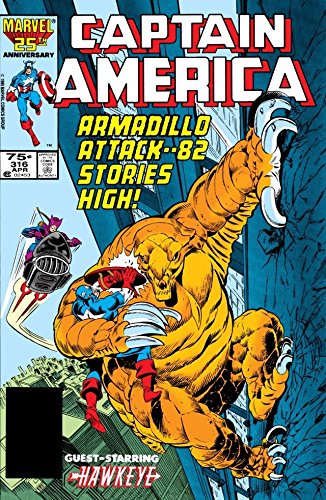
Captain America (1968-1996) #316
1990
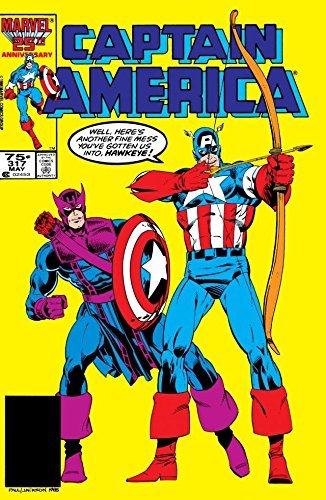
Captain America (1968-1996) #317
2014
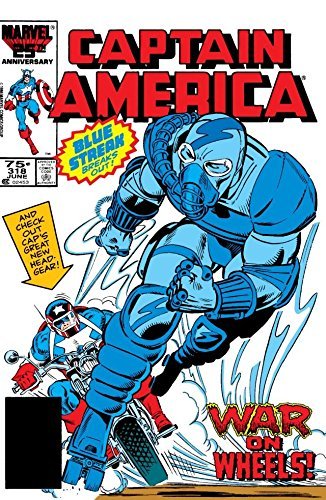
Captain America (1968-1996) #318
1986
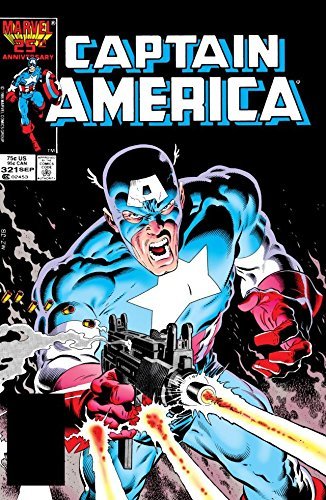
Captain America (1968-1996) #321
2014
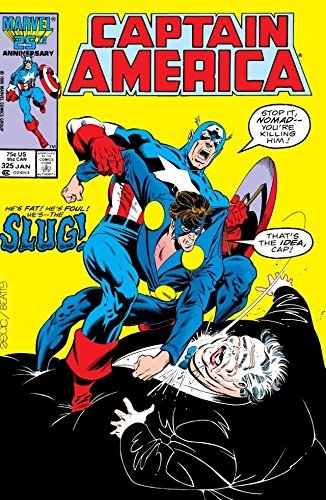
Captain America (1968-1996) #325
2014
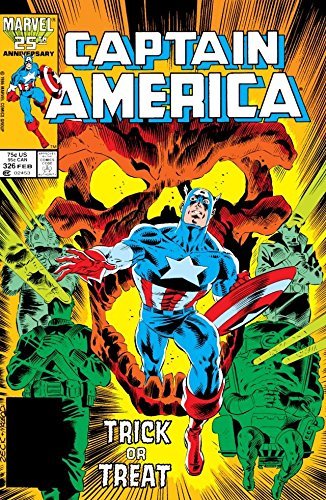
Captain America (1968-1996) #326
1987
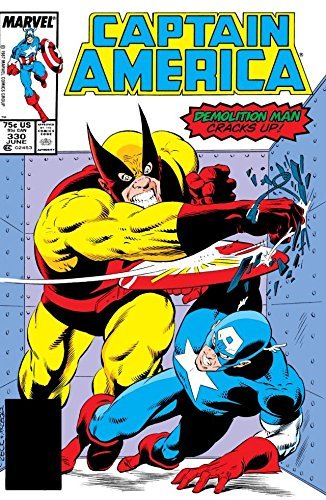
Captain America (1968-1996) #330
1987
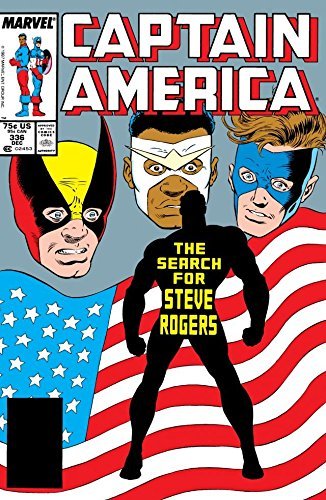
Captain America (1968-1996) #336
1987
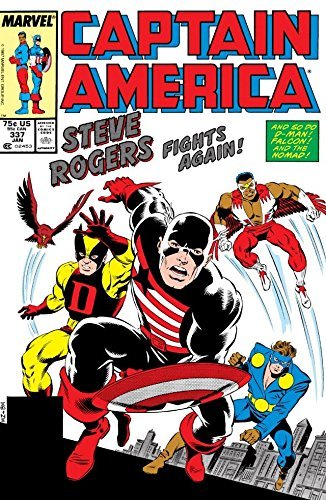
Captain America (1968-1996) #337
1987

Captain America (1968-1996) #338
1988
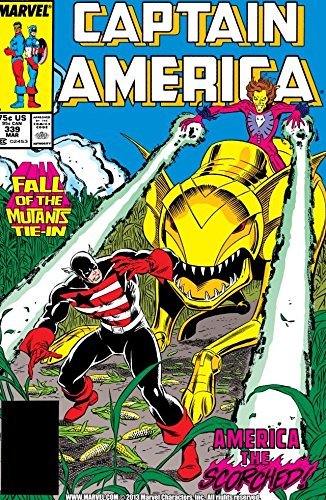
Captain America (1968-1996) #339
1988
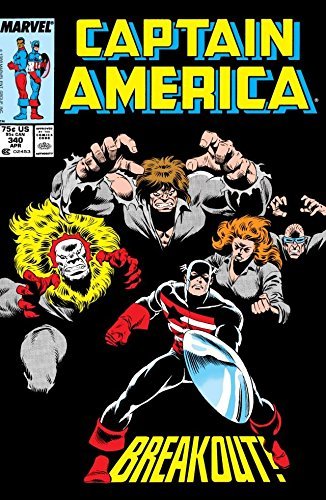
Captain America (1968-1996) #340
1988
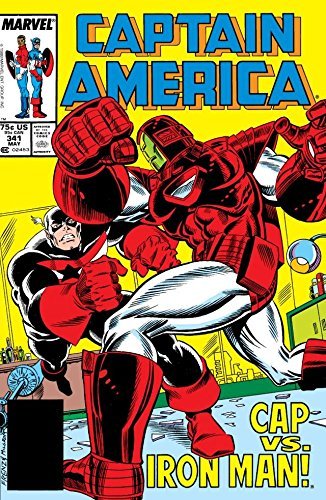
Captain America (1968-1996) #341
2014
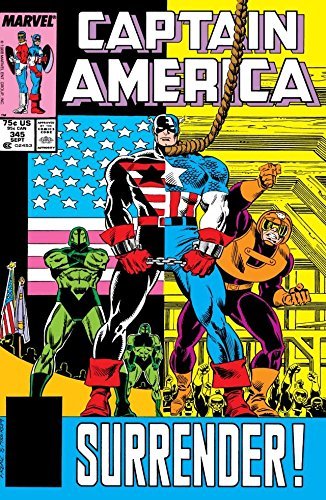
Captain America (1968-1996) #345
2014
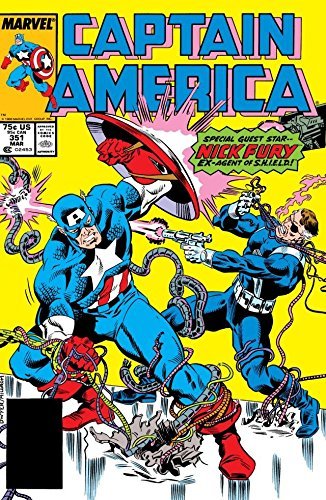
Captain America (1968-1996) #351
2014

Captain America
The Secret Story of Marvel's Star-Spangled Super Hero
1981
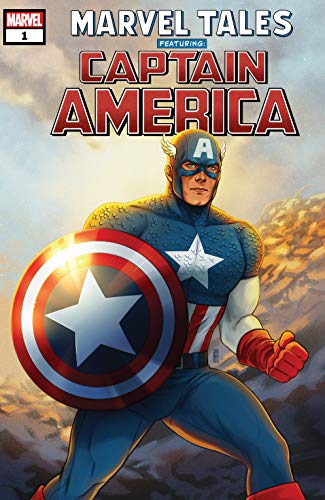
Marvel Tales
Captain America #1
2019
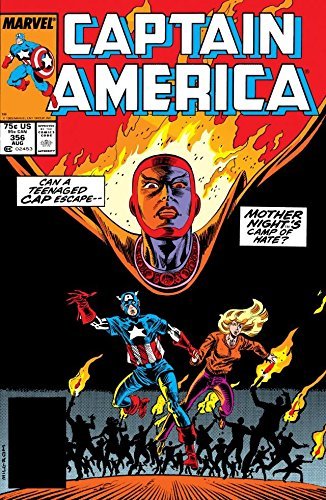
Captain America (1968-1996) #356
1989
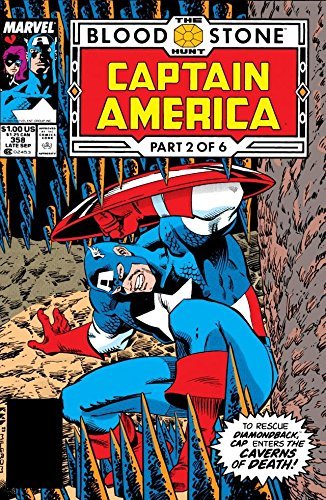
Captain America (1968-1996) #358
1989
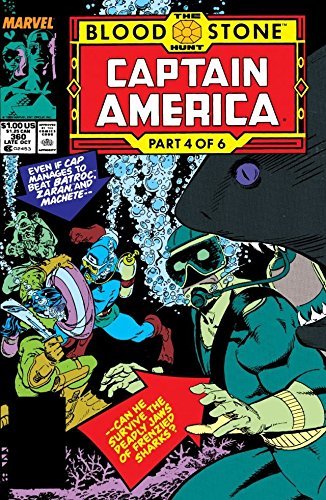
Captain America (1968-1996) #360
1989
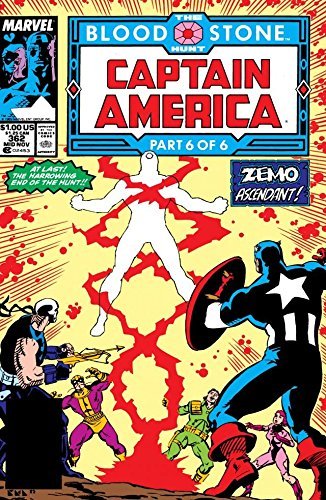
Captain America (1968-1996) #362
1989
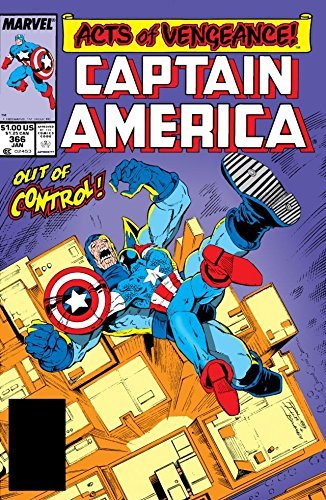
Captain America (1968-1996) #366
2014
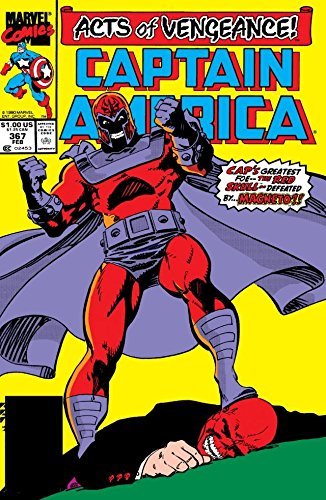
Captain America (1968-1996) #367
2014
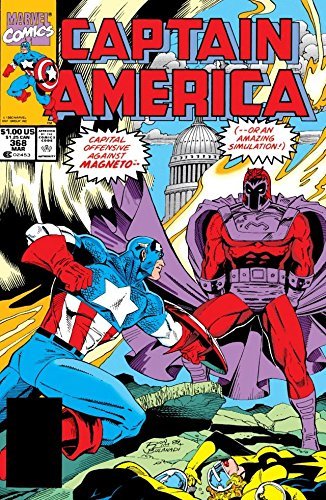
Captain America (1968-1996) #368
2014
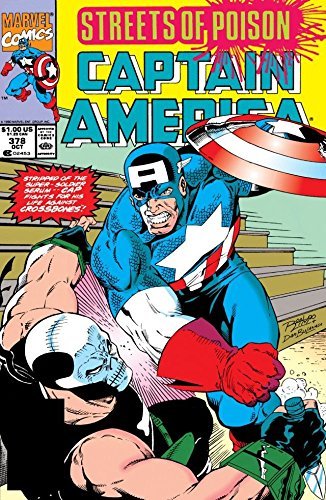
Captain America (1968-1996) #378
2000
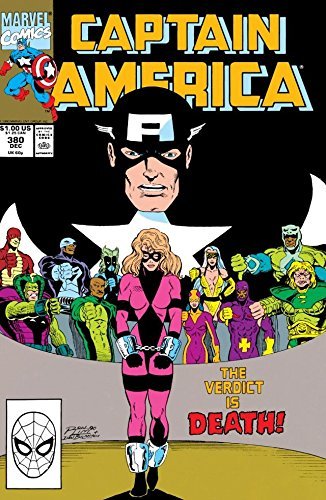
Captain America (1968-1996) #380
2014
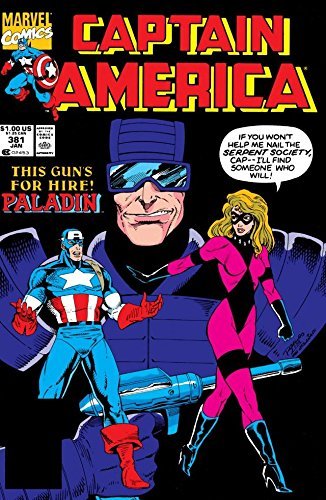
Captain America (1968-1996) #381
2014
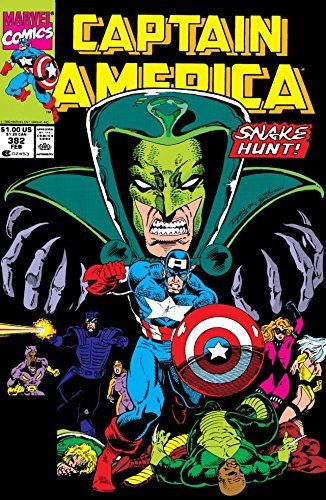
Captain America (1968-1996) #382
2014
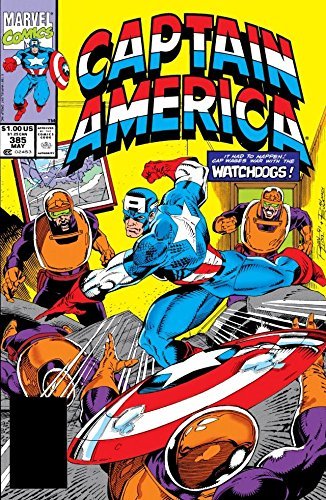
Captain America (1968-1996) #385
2014
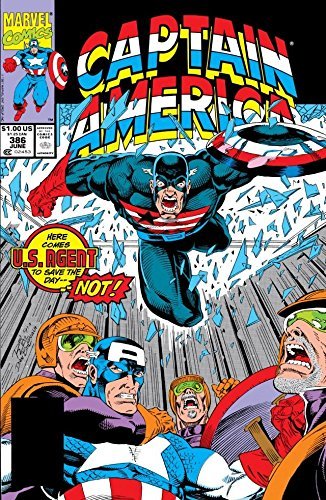
Captain America (1968-1996) #386
2014
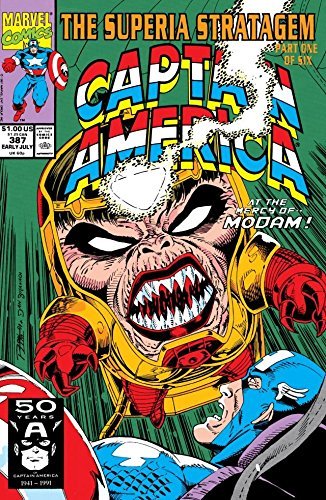
Captain America (1968-1996) #387
2014
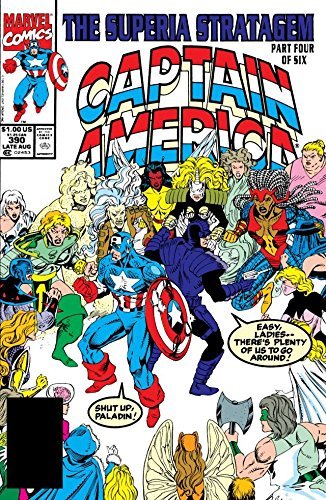
Captain America (1968-1996) #390
2014
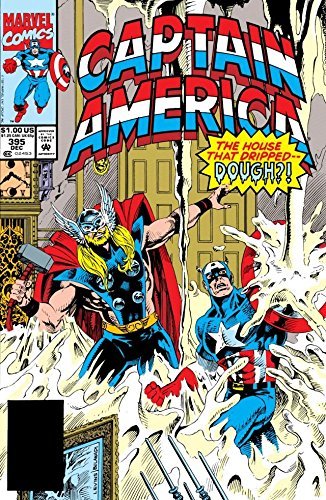
Captain America (1968-1996) #395
2014
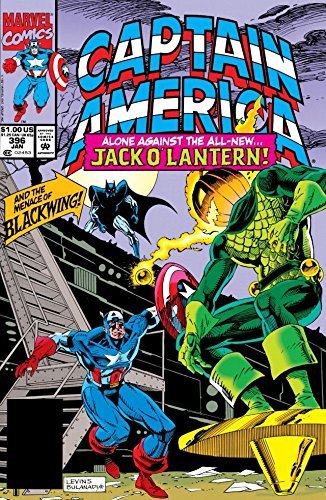
Captain America (1968-1996) #396
2014
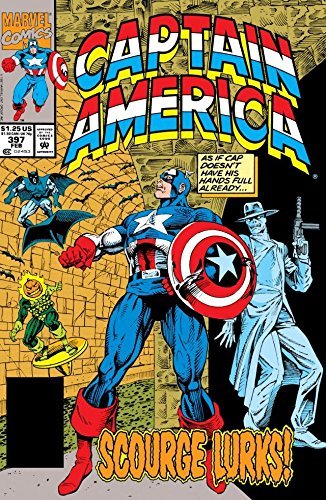
Captain America (1968-1996) #397
2014
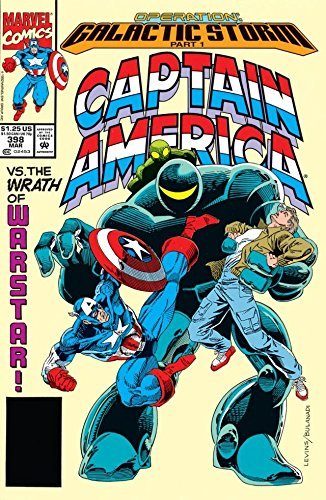
Captain America (1968-1996) #398
1992
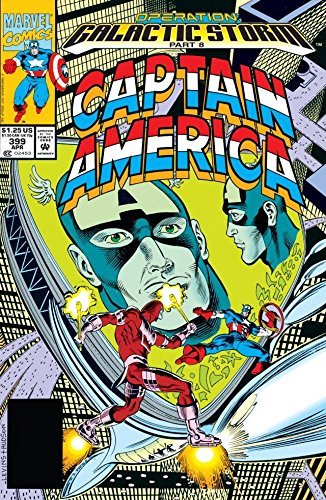
Captain America (1968-1996) #399
2014
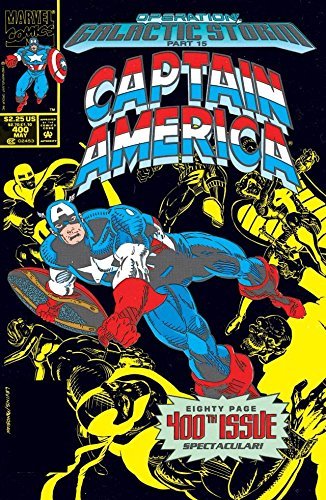
Captain America (1968-1996) #400
1970
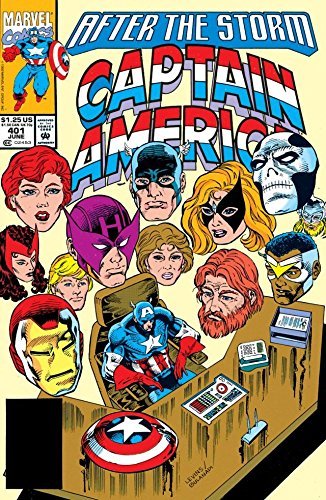
Captain America (1968-1996) #401
2014
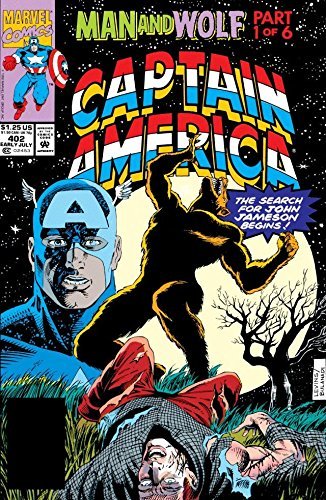
Captain America (1968-1996) #402
2014
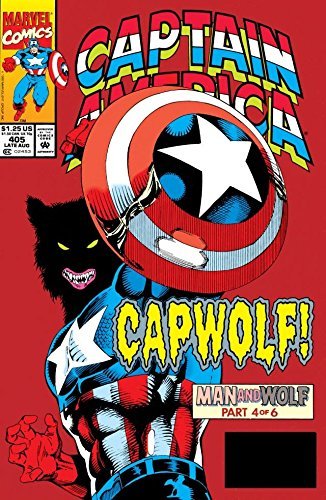
Captain America (1968-1996) #405
2014
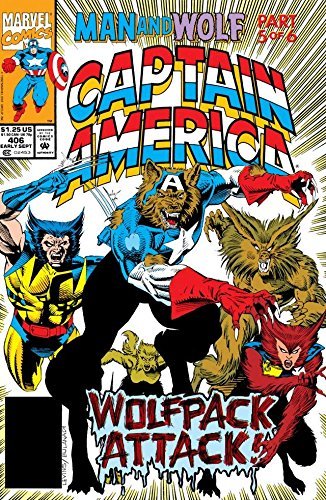
Captain America (1968-1996) #406
2014
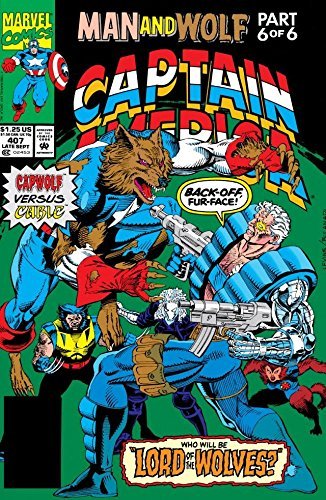
Captain America (1968-1996) #407
2014
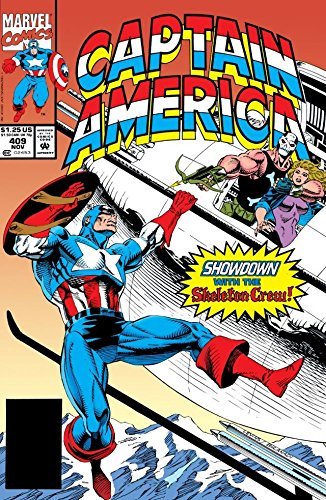
Captain America (1968-1996) #409
2014
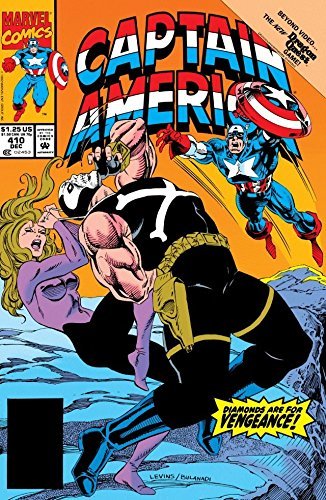
Captain America (1968-1996) #410
2014
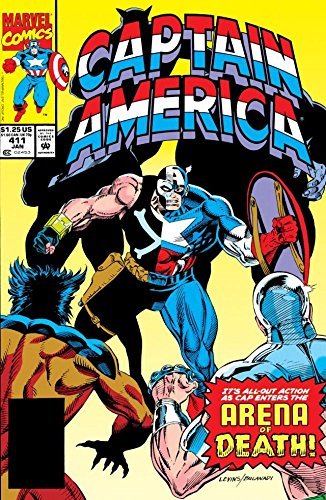
Captain America (1968-1996) #411
2014
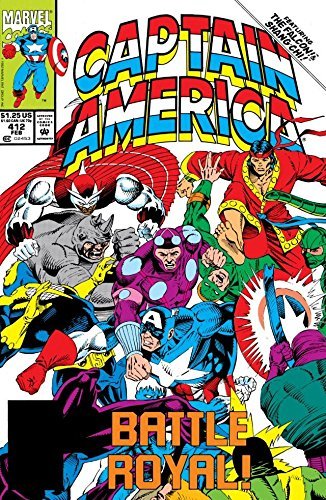
Captain America (1968-1996) #412
2014
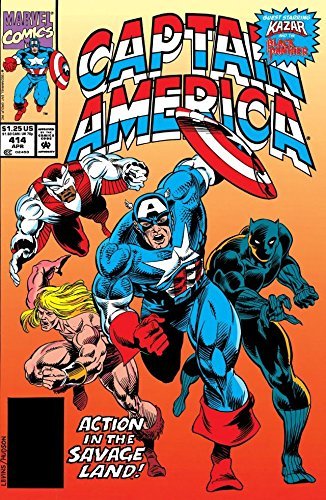
Captain America (1968-1996) #414
1993
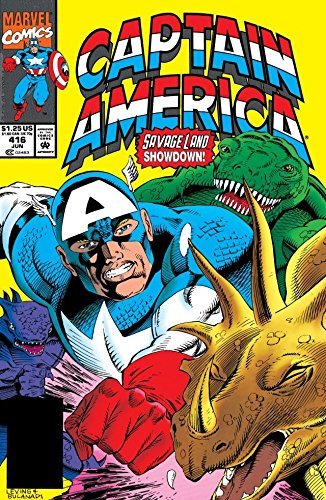
Captain America (1968-1996) #416
2014
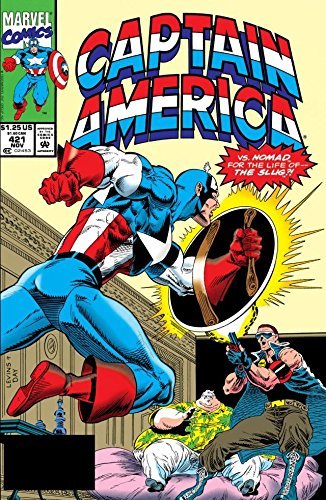
Captain America (1968-1996) #421
2014
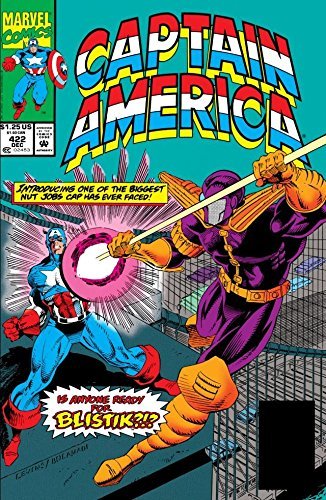
Captain America (1968-1996) #422
2014
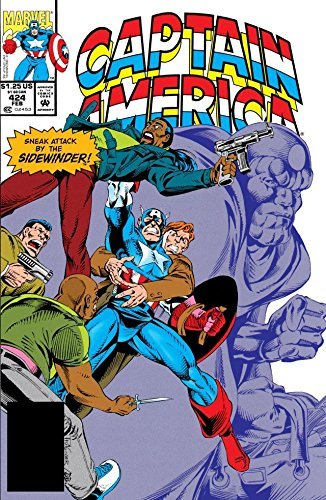
Captain America (1968-1996) #424
2014
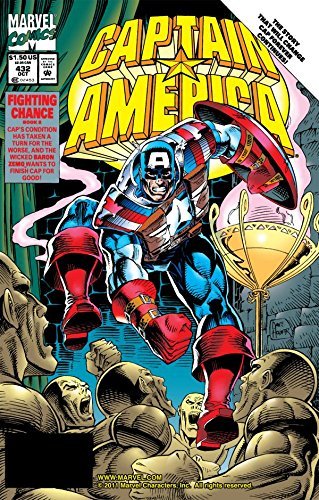
Captain America (1968-1996) #432
1994
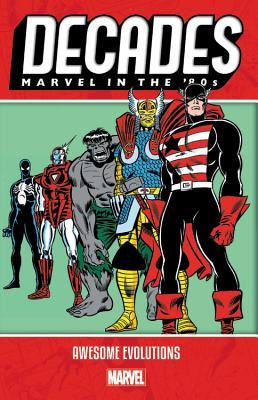
Decades
Marvel in the '80s - Awesome Evolutions
2019
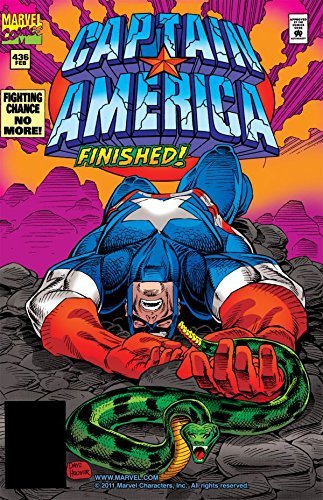
Captain America (1968-1996) #436
1995
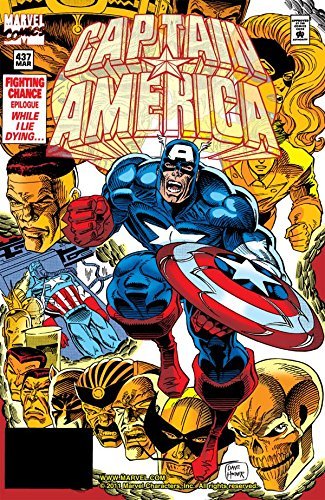
Captain America (1968-1996) #437
1995
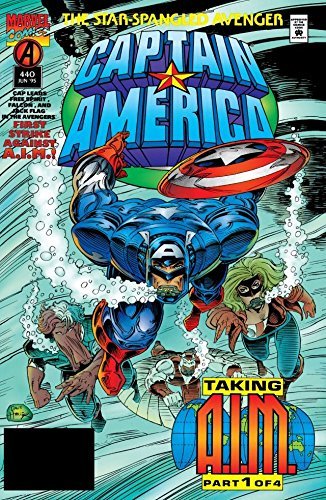
Captain America (1968-1996) #440
2014
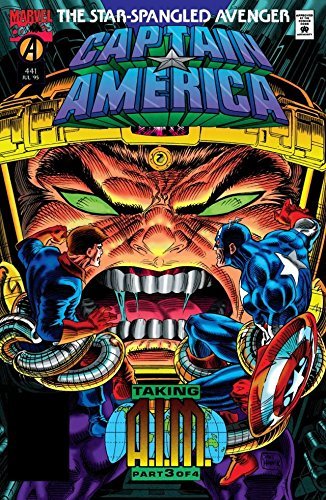
Captain America (1968-1996) #441
2014
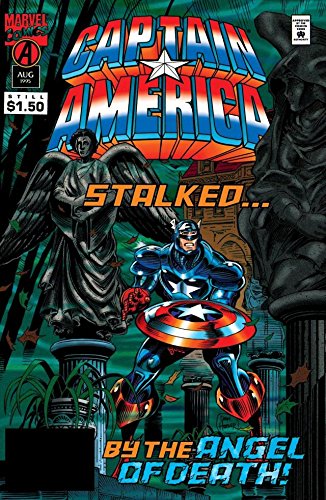
Captain America (1968-1996) #442
2000
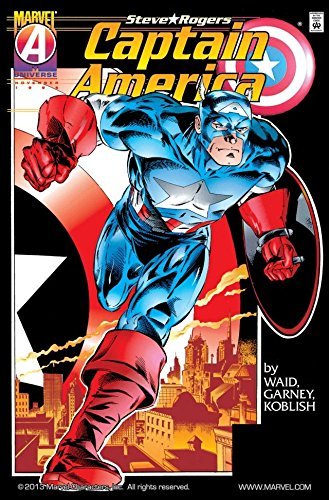
Captain America (1968-1996) #445
1995
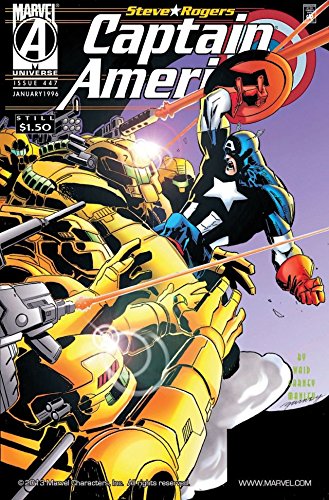
Captain America (1968-1996) #447
1996
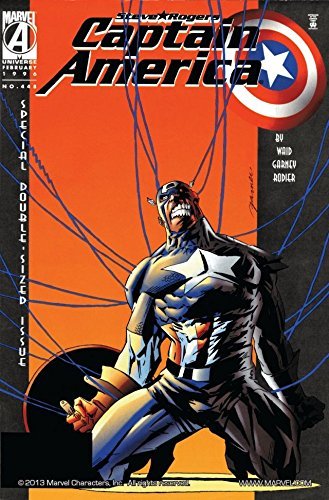
Captain America (1968-1996) #448
1996
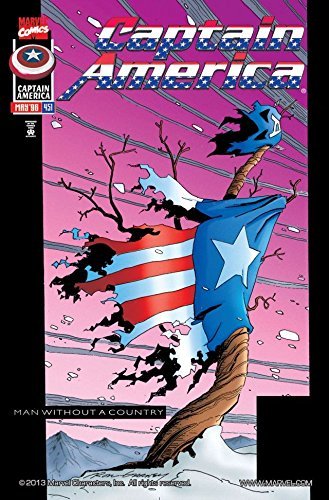
Captain America (1968-1996) #451
1996
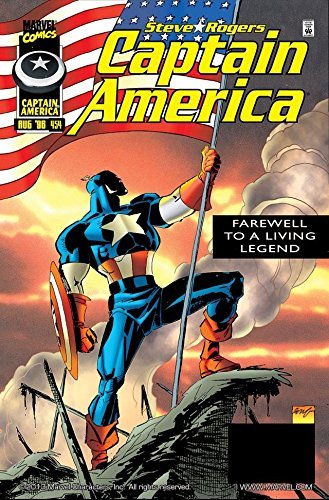
Captain America (1968-1996) #454
1996
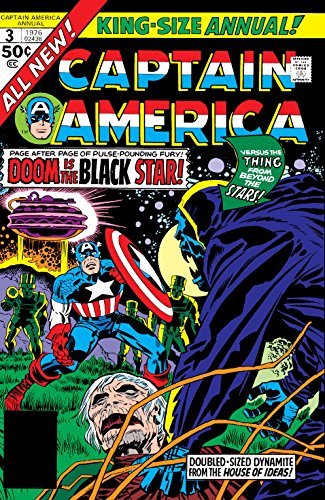
Captain America (1968-1996) Annual #3
1970
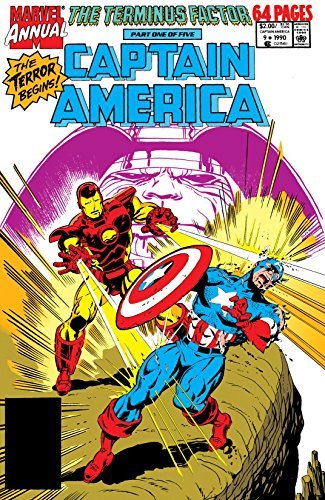
Captain America (1968-1996) Annual #9
1990
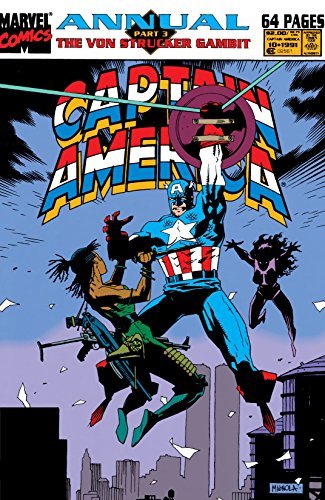
Captain America (1968-1996) Annual #10
2015

The Best of Wolverine, Vol. 1
2004

Avengers
Citizen Kang
2011

Marvel Masterworks
Captain America, Vol. 3
1969

Essential Captain America, Vol. 2
1970

Marvel Masterworks
Captain America, Vol. 4
2008

Essential Captain America, Vol. 3
1972

Captain America Vs. the Red Skull
2011

Captain America and The Falcon
Madbomb
1976

Captain America
War & Remembrance
1990

Captain America Epic Collection, Vol. 9
Dawn's Early Light
2014

Deathlok the Demolisher
The Complete Collection
2009

Captain America Epic Collection, Vol. 12
Society of Serpents
2014

Captain America Epic Collection, Vol. 13
Justice is Served
2017

Captain America
The Bloodstone Hunt
1993

Captain America
Operation Rebirth
1996
Authors

Tony Isabella is an American comic book writer, editor, artist and critic, known as the creator and writer of Marvel Comics' Black Goliath; DC Comics' first major African-American superhero, Black Lightning; and as a columnist and critic for the Comics Buyer's Guide. Contents

DONALD F. GLUT has been professionally active in both the entertainment and publishing industries since 1966. Born in Pecos, Texas, Don grew up in Chicago, IL. At age nine, already bitten by the film-making “bug,” he made Diplodocus at Large, the first of 41 amateur movies featuring dinosaurs, human monsters (Frankenstein’s Monster, Teenage Werewolf, etc.) and superheroes (Spider-Man, Captain Marvel, etc.) Some of these films made during the late 1960s (e.g., Spy Smasher vs. the Purple Monster) were eventually shown in theatres and on TV. Moving to Los Angeles to attend the University of Southern California, Don professionally entered show business as an “extra” (a POW) in the movie Von Ryan’s Express (1965), the first of several such “roles.” He began his professional writing career in 1966, writing articles for and finally editing the magazine Modern Monsters. In 1967, after graduating from the University of Southern California with a BA degree (for Cinema) in Letters, Arts and Sciences, Don worked as a musician, singer and songwriter in The Penny Arkade, a rock band produced by “Monkee” Michael Nesmith. Shortly after that he briefly furthered his acting career, having a speaking role in a national television commercial starring Dick Clark. However, most of Don’s professional life has been as a freelance writer. To date he has authored numerous motion picture and television scripts (Shazam!, Land of the Lost, and animation, e.g., Spider-Man & His Amazing Friends, Transformers, G.I.Joe, Duck Tales, Jonny Quest, X-Men, others), comic-book scripts (Captain America, Tarzan, etc., including creating for Gold Key Dagar the Invincible, The Occult Files of Dr. Spektor and Tragg and the Sky Gods), more than 35 novels and nonfiction books, also numerous short stories, articles, songs, album-liner notes, etc. The Dinosaur Dictionary (1972) and Dinosaurs: The Encyclopedia (1997), two of Don’s many non-fiction books about dinosaurs, both were listed by the American Library Association among the best reference books of their years of publication. With The Dinosaur Dictionary Don created the much-imitated book format based upon an alphabetical listing of dinosaur names. Perhaps Don is best known for his novelization of the movie The Empire Strikes Back (1980), the nation’s No. 1 bestseller for almost two months, which to date (still in print) has sold over 3.5 million copies. In 1982 he created characters and back story for Mattel’s “Masters of the Universe” toy line. Among his more recent books is Chomper, an entry in the popular “Dinotopia” series. Don produced, wrote and directed various videos (including the documentaries Dinosaur Movies and Hollywood Goes Ape! and the music-video compilation Dinosaur Tracks®), theatre and movie projects. He has worked as a consultant on numerous other video, film and TV projects, and was “Dinosaur Consultant” on Roger Corman’s movie Carnosaur (1993). In 1990, Don and Pete Von Sholly founded Fossil Records, which has already produced a half dozen albums. These include Dinosaur Tracks®, More Dinosaur Tracks® and Dinosaur Tracks® Again, featuring paleontology-related rock music written mostly by Don (Dinodon Music/BMI), performed by Don and Pete (as the Iridium Band). More recently, Don became president of Frontline Entertainment (www.frontlinefilms.com), for which he wrote, directed and co-produced the comedy/fantasy motion picture Dinosaur Valley Girls™, which has already achieved “cult movie” status, and Before La Brea, a documentary commissioned by the George C. Page Museum of La Brea Discoveries in Los Angeles. In 2000, he was commissioned by Irena Belle Productions to direct the movie The Vampire Hunters Club, featuring an all-star genre cast.

Librarian note: There is more than one author in the GoodReads database with this name John Lindley Byrne is a British-born Canadian-American author and artist of comic books. Since the mid-1970s, Byrne has worked on nearly every major American superhero. Byrne's better-known work has been on Marvel Comics' X-Men and Fantastic Four and the 1986 relaunch of DC Comics’ Superman franchise. Coming into the comics profession exclusively as a penciler, Byrne began co-plotting the X-Men comics during his tenure on them, and launched his writing career in earnest with Fantastic Four (where he also started inking his own pencils). During the 1990s he produced a number of creator-owned works, including Next Men and Danger Unlimited. He also wrote the first issues of Mike Mignola's Hellboy series and produced a number of Star Trek comics for IDW Publishing.
Librarian note: There is more than one author in the GoodReads database with this name John Warner is an American comic book writer and editor, known for his stories of horror and the supernatural. (source: Wikipedia)

Len Wein was an American comic book writer and editor best known for co-creating DC Comics' Swamp Thing and Marvel Comics' Wolverine, and for helping revive the Marvel superhero team the X-Men (including the co-creation of Nightcrawler, Storm, and Colossus). Additionally, he was the editor for writer Alan Moore and illustrator Dave Gibbons' influential DC miniseries Watchmen. Wein was inducted into the Will Eisner Comic Book Hall of Fame in 2008.



For the Karate Kid actor, click here: Ralph Macchio Ralph Macchio is an American comic book editor and writer, who has held many positions at Marvel Comics, including executive editor. Macchio is commonly associated with Daredevil, the Spider-Man line of comics and the popular Ultimate Marvel line. In Macchio's words, he "made probably the longest run on Daredevil of anyone." Macchio is not related to the actor Ralph Macchio, but is nicknamed "Karate Kid" after that actor's famous role.

Steve Gerber graduated from the University of Missouri with a degree in communications and took a job in advertising. To keep himself sane, he wrote bizarre short stories such as "Elves Against Hitler," "Conversion in a Terminal Subway," and "...And the Birds Hummed Dirges!" He noticed acquaintance Roy Thomas working at Marvel, and Thomas sent him Marvel's standard writing test, dialoguing Daredevil art. He was soon made a regular on Daredevil and Sub-Mariner, and the newly created Man-Thing, the latter of which pegged him as having a strong personal style—intellectual, introspective, and literary. In one issue, he introduced an anthropomorphic duck into a horror fantasy, because he wanted something weird and incongruous, and Thomas made the character, named for Gerber's childhood friend Howard, fall to his apparent death in the following issue. Fans were outraged, and the character was revived in a new and deeply personal series. Gerber said in interview that the joke of Howard the Duck is that "there is no joke." The series was existential and dealt with the necessities of life, such as finding employment to pay the rent. Such unusual fare for comicbooks also informed his writing on The Defenders. Other works included Morbius, the Lving Vampire, The Son of Satan, Tales of the Zombie, The Living Mummy, Marvel Two-in-One, Guardians of the Galaxy, Shanna the She-Devil, and Crazy Magazine for Marvel, and Mister Miracle, Metal Men, The Phantom Zone , and The Immortal Doctor Fate for DC. Gerber eventually lost a lawsuit for control of Howard the Duck when he was defending artist Gene Colan's claim of delayed paychecks for the series, which was less important to him personally because he had a staff job and Colan did not. He left comics for animation in the early 1980s, working mainly with Ruby-Spears, creating Thundarr the Barbarian with Alex Toth and Jack Kirby and episodes of The Puppy's Further Adventures, and Marvel Productions, where he was story editor on multiple Marvel series including Dungeons & Dragons, G.I. Joe, and The Transformers. He continued to dabble in comics, mainly for Eclipse, including the graphic novel Stewart the Rat, the two-part horror story "Role Model: Caring, Sharing, and Helping Others," and the seven-issue Destroyer Duck with Jack Kirby, which began as a fundraiser for Gerber's lawsuit. In the early 1990s, he returned to Marvel with Foolkiller, a ten-issue limited series featuring a new version of a villain he had used in The Man-Thing and Omega the Unknown, who communicated with a previous version of the character through internet bulletin boards. An early internet adopter himself, he wrote two chapters of BBSs for Dummies with Beth Woods Slick, with whom he also wrote the Star Trek: The Next Generation episode, "Contagion." During this period, he also wrote The Sensational She-Hulk and Cloak and Dagger for Marvel, Cybernary and WildC.A.T.s for Image, and Sludge and Exiles for the writer-driven Malibu Ultraverse, and Nevada for DC's mature readers Vertigo line. In 2002, he returned to the Howard the Duck character for Marvel's mature readers MAX line, and for DC created Hard Time with Mary Skrenes, with whom he had co-created the cult hit Omega the Unknown for Marvel. Their ending for Omega the Unknown remains a secret that Skrenes plans to take to the grave if Marvel refuses to publish it. Suffering from idiopathic pulmonary fibrosis ("idiopathic" meaning of unknown origin despite having been a heavy smoker much of his life), he was on a waiting list for a double lung transplant. His final work was the Doctor Fate story arc, "More Pain Comics," for DC Comics'
David Anthony Kraft was an American comic book writer, publisher, and critic. (source: Wikipedia)


Roy Thomas was the FIRST Editor-in-Chief at Marvel—After Stan Lee stepped down from the position. Roy is a longtime comic book writer and editor. Thomas has written comics for Archie, Charlton, DC, Heroic Publishing, Marvel, and Topps over the years. Thomas currently edits the fanzine Alter Ego for Twomorrow's Publishing. He was Editor for Marvel comics from 1972-1974. He wrote for several titles at Marvel, such as Avengers, Thor, Invaders, Fantastic Four, X-Men, and notably Conan the Barbarian. Thomas is also known for his championing of Golden Age comic-book heroes—particularly the 1940s superhero team the Justice Society of America—and for lengthy writing stints on Marvel's X-Men and Avengers, and DC Comics' All-Star Squadron, among other titles. Also a legendary creator. Creations include Wolverine, Carol Danvers, Ghost Rider, Vision, Iron Fist, Luke Cage, Valkyrie, Morbius, Doc Samson, and Ultron. Roy has also worked for Archie, Charlton, and DC among others over the years.

Stan Lee (born Stanley Martin Lieber) was an American writer, editor, creator of comic book superheroes, and the former president and chairman of Marvel Comics. With several artist co-creators, most notably Jack Kirby and Steve Ditko, he co-created Spider-Man, the Fantastic Four, Thor as a superhero, the X-Men, Iron Man, the Hulk, Daredevil, the Silver Surfer, Dr. Strange, Ant-Man and the Wasp, Scarlet Witch, The Inhumans, and many other characters, introducing complex, naturalistic characters and a thoroughly shared universe into superhero comic books. He subsequently led the expansion of Marvel Comics from a small division of a publishing house to a large multimedia corporation.

Ed Brubaker (born November 17, 1966) is an Eisner Award-winning American cartoonist and writer. He was born at the National Naval Medical Center, Bethesda, Maryland. Brubaker is best known for his work as a comic book writer on such titles as Batman, Daredevil, Captain America, Iron Fist, Catwoman, Gotham Central and Uncanny X-Men. In more recent years, he has focused solely on creator-owned titles for Image Comics, such as Fatale, Criminal, Velvet and Kill or Be Killed. In 2016, Brubaker ventured into television, joining the writing staff of the HBO series Westworld.


Josef "Joe" Rubinstein started his artist career in the early 1970s as a teenager. Primarily working as an inker, his artwork has been published by all major U.S. comics publishers including Marvel Comics, DC Comics and Dark Horse Comics. One of his most important works has been inking The Official Handbook of the Marvel Universe over a span of twenty years for which he holds a Guinness World Record of inking more pencilers than any other inker. Among his extensive inking credits (which include more than 2,500 comic books), Rubinstein inked a mini-series for Dark Horse Comics called Archenemies, and co-inked issues of DC Comics' Ion mini-series. He currently inks the ongoing series Green Arrow/Black Canary for DC Comics. Photo by Luigi Novi.



Mike W. Barr is an American writer of comic books, and mystery, and science fiction novels. Barr's debut as a comics professional came in DC Comics' Detective Comics #444 (Dec. 1974-Jan. 1975), for which he wrote an 8-page back-up mystery feature starring the Elongated Man. Another Elongated Man story followed in Detective Comics #453 (November 1975). He wrote text articles and editorial replies in letter columns for the next few years. By mid-1980 he was writing regularly for both DC and Marvel, including stories for Marvel Team-Up, Mystery in Space, Green Lantern, and various Batman titles. Legion of Super-Heroes #277 (July 1981) saw him take on editorial duties at DC, while writing issues of DC's Star Trek comic, for whom he created the native American character Ensign Bearclaw and a pacifist Klingon named Konom. In December 1982, he and artist Brian Bolland began Camelot 3000, a 12 issue limited series that was one of DC Comics' first direct market projects. In August 1983, Barr created what may well be his most enduring work, the monthly title Batman and the Outsiders with art by Jim Aparo. Barr wrote every issue of the original series, and its Baxter paper spinoff, The Outsiders. His other comics work includes Mantra and Maze Agency as well as the 1987 OGN hardcover book Batman: Son of the Demon (with art by Jerry Bingham), proceeds from which reputedly "restored DC Comics to first place in sales after fifteen years." This title, and Barr's work on Batman with artist Alan Davis have been cited by Grant Morrison as key inspirations for his recent (2006) run on the Batman title. In 2007, he wrote a two-part story for the pages of DC's JLA: Classified (#47-48, Jan-Feb 2008), returned to the Outsiders with Outsiders: Five of a Kind—Katana/Shazam #1 (Oct 2007), contributed to Tokyopop's Star Trek: The Manga, and relaunched Maze Agency at IDW Publishing. He has also scripted many of Bongo Comics' Simpsons titles, including a Christmas story for 2010. In May 2010, the Invisible College Press published Barr's science fiction/fantasy novel, Majician/51, about the discoveries of a scientist working at Area 51.

See also John Harkness. Steve Englehart went to Wesleyan University in Middletown, Connecticut. After a stint in the Army, he moved to New York and began to write for Marvel Comics. That led to long runs on Captain America, The Hulk, The Avengers, Dr. Strange, and a dozen other titles. Midway through that period he moved to California (where he remains), and met and married his wife Terry. He was finally hired away from Marvel by DC Comics, to be their lead writer and revamp their core characters (Superman, Batman, Wonder Woman, Flash, and Green Lantern). He did, but he also wrote a solo Batman series (immediately dubbed the "definitive" version) that later became Warner Brothers' first Batman film (the good one). After that he left comics for a time, traveled in Europe for a year, wrote a novel (The Point Man™), and came back to design video games for Atari (E.T., Garfield). But he still liked comics, so he created Coyote™, which within its first year was rated one of America's ten best series. Other projects he owned (Scorpio Rose™, The Djinn™) were mixed with company series (Green Lantern [with Joe Staton], Silver Surfer, Fantastic Four). Meanwhile, he continued his game design for Activision, Electronic Arts, Sega, and Brøderbund. And once he and Terry had their two sons, Alex and Eric, he naturally told them stories. Rustle's Christmas Adventure was first devised for them. He went on to add a run of mid-grade books to his bibliography, including the DNAgers™ adventure series, and Countdown to Flight, a biography of the Wright brothers selected by NASA as the basis for their school curriculum on the invention of the airplane. In 1992 Steve was asked to co-create a comics pantheon called the Ultraverse. One of his contributions, The Night Man, became not only a successful comics series, but also a television show. That led to more Hollywood work, including animated series such as Street Fighter, GI Joe, and Team Atlantis for Disney.


Fabian Nicieza is a writer and editor who is best known as the co-creator of DEADPOOL and for his work on Marvel titles such as X-Men, X-Force, New Warriors, and Robin. His first novel, the Edgar Award-nominated SUBURBAN DICKS, a sarcastic murder mystery, is on sale now from Putnam Books. The Dicks will return in THE SELF-MADE WIDOW, coming June 21st.

Doug Moench, is an American comic book writer notable for his Batman work and as the creator of Black Mask, Moon Knight and Deathlok. Moench has worked for DC Comics, Marvel Comics, Dark Horse Comics and many other smaller companies; he has written hundreds of issues of many different comics, and created dozens of characters, such as Moon Knight. In 1973, Moench became the de facto lead writer for the Marvel black-and-white magazine imprint Curtis Magazines. He contributed to the entire runs of Planet of the Apes, Rampaging Hulk (continuing on the title when it changed its name to The Hulk!) and Doc Savage, while also serving as a regular scribe for virtually every other Curtis title during the course of the imprint's existence. Moench is perhaps best known for his work on Batman, whose title he wrote from 1983–1986 and then again from 1992–1998. (He also wrote the companion title Detective Comics from 1983–1986.) Moench is a frequent and longtime collaborator with comics artist Paul Gulacy. The pair are probably best known for their work on Shang-Chi: Master of Kung Fu, which they worked on together from 1974–1977. They also co-created Six from Sirius, Slash Maraud, and S.C.I. Spy, and have worked together on comics projects featuring Batman, Conan the Barbarian and James Bond. Moench has frequently been paired with the artist and inker team of Kelley Jones and John Beatty on several Elseworlds Graphic Novels and a long run of the monthly Batman comic.


Dennis "Denny" O'Neil was a comic book writer and editor best known for his work for Marvel Comics and DC Comics from the 1960s through the 1990s, and Group Editor for the Batman family of titles until his retirement. His best-known works include Green Lantern/Green Arrow and Batman with Neal Adams, The Shadow with Michael Kaluta and The Question with Denys Cowan. As an editor, he is principally known for editing the various Batman titles. From 2013 unti his death, he sat on the board of directors of the charity The Hero Initiative and served on its Disbursement Committee.
Brian Clevinger is best known as the author of the most popular sprite webcomic, and one of the most popular webcomics overall, 8-Bit Theater. He is also the author of the self-published novel Nuklear Age. Clevinger has recently received attention for his Eisner-nominated print comic Atomic Robo. Claiming that his "favorite comics are the ones where the jokes are on the reader," Clevinger is an expert in using anti-climax, interface alterations, and the occasional false ending to play with the reader's expectations. It is a testament to both his sense of humor and his writing skills that these "jokes on the reader" are usually beloved by his fanbase.

Chris Claremont is a writer of American comic books, best known for his 16-year (1975-1991) stint on Uncanny X-Men, during which the series became one of the comic book industry's most successful properties. Claremont has written many stories for other publishers including the Star Trek Debt of Honor graphic novel, his creator-owned Sovereign Seven for DC Comics and Aliens vs Predator for Dark Horse Comics. He also wrote a few issues of the series WildC.A.T.s (volume 1, issues #10-13) at Image Comics, which introduced his creator-owned character, Huntsman. Outside of comics, Claremont co-wrote the Chronicles of the Shadow War trilogy, Shadow Moon (1995), Shadow Dawn (1996), and Shadow Star (1999), with George Lucas. This trilogy continues the story of Elora Danan from the movie Willow. In the 1980s, he also wrote a science fiction trilogy about female starship pilot Nicole Shea, consisting of First Flight (1987), Grounded! (1991), and Sundowner (1994). Claremont was also a contributor to the Wild Cards anthology series.




